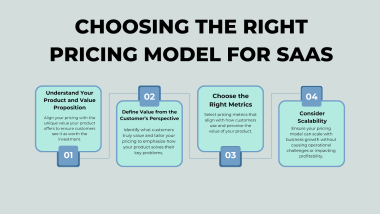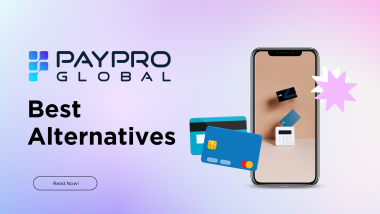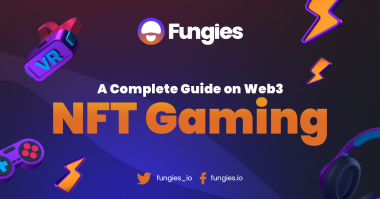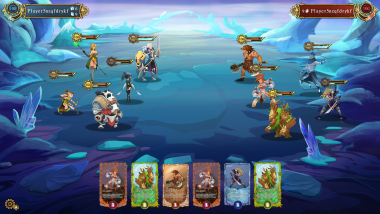Creating a website for your game is an essential part of marketing and promoting your game. While traditional web development requires coding skills and a lot of time and effort, there are now no code website making tools available that make it easier for anyone to create a professional-looking website without needing any coding experience. In this article, we will explore how to use a game website maker, including useful tips and tricks. We will also review 15 examples of great no code website making tools like Webflow and discuss what should be included on a game website.
Part 1: Why Use a Game Website Maker
Using a game website maker has many benefits for game developers, including:
- No Coding Required: Game website makers don’t require any coding skills, making it easier for anyone to create a website.
- Save Time and Effort: Using a website maker saves time and effort compared to traditional web development.
- Professional-Looking Website: Website makers provide professional-looking templates and designs, making it easy to create a high-quality website.
- Cost-Effective: Website makers are often more cost-effective than hiring a web developer.
- Easy to Update: Updating and maintaining a website created with a website maker is easy and can be done quickly.
Part 2: Useful Tipsa and Tricks for Using a Game Website Maker
- Choose the Right Website Maker: There are many website makers available, so choose one that fits your needs and skill level.
- Start with a Template: Most website makers provide templates that you can use as a starting point for your website. Choose a template that fits your game’s style and tone.
- Customize the Design: Customize the design of the template to make it unique and match your game’s style.
- Use High-Quality Images: Use high-quality images and videos to showcase your game’s graphics and gameplay mechanics. This will give visitors a better idea of what to expect from your game.
- Make It Mobile-Friendly: Ensure that your website is mobile-friendly so visitors can access it from any device.
- Include Social Media Links: Include links to your social media accounts on your website so visitors can follow you and share your content.
- Use Calls to Action: Use calls to action, such as “Buy Now” or “Sign Up for Updates,” to encourage visitors to take action and engage with your game.
- Provide Contact Information: Provide visitors with contact information, such as an email address or contact form, to get in touch with you.
- Include Reviews and Testimonials: Include reviews and testimonials from players or game critics to showcase the quality and popularity of your game.
- Keep It Up-to-Date: Keep your website up-to-date with the latest news and information about your game, including release dates and new content.
Part 3: Examples of Great No Code Website Making Tools
- Webflow: Webflow is a popular website maker that offers a range of templates and customization options for creating professional-looking websites.
- Squarespace: Squarespace is a website maker that provides templates and design tools for creating websites.
- Wix: Wix is a website maker that offers a range of templates and customization options for creating websites.
- Weebly: Weebly is a website maker that provides templates and design tools for creating websites.
- Bubble: Bubble is a website maker that allows you to create web applications and websites without any coding experience.
- Carrd: Carrd is a website maker that offers simple and customizable templates for creating websites.
- Strikingly: Strikingly is a website maker that provides templates and design tools for creating websites.
- WordPress: WordPress is a website maker that allows you to create custom websites using templates and plugins.
- Duda: Duda is a website maker that offers a range of templates and customization options for creating websites, including e-commerce websites.
- Shopify: Shopify is a website maker that specializes in e-commerce websites, providing templates and design tools for creating online stores.
- Tilda: Tilda is a website maker that offers customizable templates for creating websites, including landing pages and online stores.
- Webnode: Webnode is a website maker that provides templates and design tools for creating websites, including e-commerce websites.
- Elementor: Elementor is a website maker that allows you to create custom websites using drag-and-drop design tools.
- Jimdo: Jimdo is a website maker that offers a range of templates and customization options for creating websites, including e-commerce websites.
- SiteBuilder: SiteBuilder is a website maker that provides templates and design tools for creating websites, including e-commerce websites.
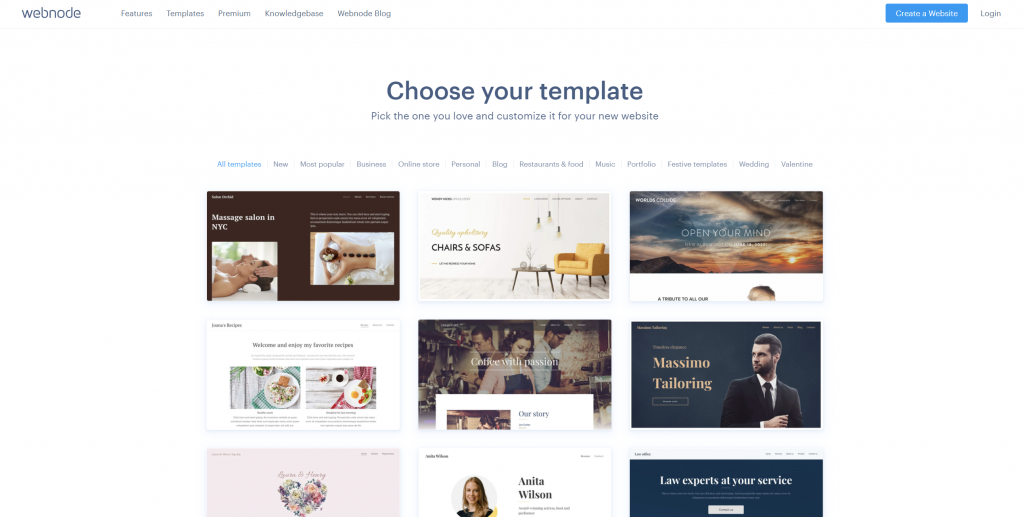
Part 4: Things That Need to Be Included on a Game Website
- Game Information: Information about your game, including gameplay mechanics, storyline, and characters.
- Trailers and Screenshots: High-quality trailers and screenshots to showcase your game’s graphics and gameplay mechanics.
- Release Date and Platforms: Information about the release date and platforms where your game can be played.
- Purchase Options: Links to purchase options, including online stores or direct purchase from your website.
- Reviews and Testimonials: Reviews and testimonials from players or game critics to showcase the quality and popularity of your game.
- Social Media Links: Links to your social media accounts so visitors can follow and share your content.
- Contact Information: Contact information, such as an email address or contact form, so visitors can get in touch with you.
- News and Updates: Keep your website up-to-date with the latest news and updates about your game, including new content releases and updates.
- Support Options: Provide support options, such as an FAQ or contact form, to help visitors with any issues they may encounter while playing your game.
- Legal Information: Include legal information, such as terms and conditions and privacy policy, to ensure compliance with regulations and protect your game and website.
Conclusion
Using a game website maker is an effective and cost-efficient way to create a professional-looking website for your game without needing any coding skills. By following the useful tips and tricks outlined in this article and looking at the 15 examples of great no code website making tools, you can create a website that showcases your game’s graphics, gameplay mechanics, and storyline. Be sure to include all the necessary information, such as release dates, purchase options, and social media links, and keep your website up-to-date with the latest news and updates. A well-designed and informative game website can help generate interest in your game and encourage players to purchase and play it.
